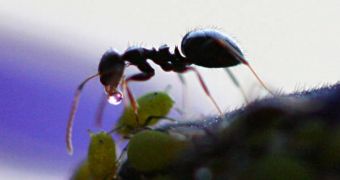For a long time, ants have been appreciated by experts in the scientific community as some of the most intelligent and advanced creatures on the planet. Their complex network of interactions allowed them, over the years, to form some of the most complex societies in existence today, rivaling our own in number and specialization. The insects are also vastly under-appreciated when it comes to the way they conduct their daily business. While humans, and most other species, at times behave irrationally, ants rarely do so, and prefer options that are most effective in achieving their desired objective.
One of the things that has always puzzled psychologists about humans was the fact that we, as a race, seemed to be fooled by decoys. These decoys can be defined in terms of houses, for example. If a couple looks for a place to live that should have, say, a big kitchen and a big yard, they are inclined to favor equally houses with big kitchens and small yards or small kitchens and large yards. But when a third house comes into the equation – that has a large kitchen, but no yard – preferences oddly change from a 50/50 chance to favoring the house with the big kitchen and small yard.
This is, in fact, an irrational choice, as the third option should have not even been considered, on account of the fact that it failed to meet one of the original starting criteria. This behavior translates into the fact that people change their preferences on account of a third option. The same type of reasoning does not apply to ants, whose idea of a house is a dark cavity with a small entrance. Curious to learn how the insects are affected by their options when moving the colony, Behavioral Ecologist Stephen Pratt, from the Arizona State University in Tempe, studied their behavior in the lab.
When presented with options such as the ones the humans had – either a dark cavity with a large entrance, or a bright one with a small entrance – the ants, like humans, chose either of them an equal number of times. But when a third option was inserted that featured a very bright cavity with a small opening, and was visibly worse than either of the previous two, most of the colonies ignored it. Surely, there were a few that set up residence there, but most of the 26 colonies decided on one of the former two options. This means that their original preferences are not changed by third options.
The finds may have “really interesting implications for the benefits of collective decision-making, which we could learn something from,” Newcastle University Ethologist Melissa Bateson explains. Pratt adds that the method the ants employ for finding new nests, in which increased numbers of scouts gather at the same location if it holds promise, is the best way to make a choice. “The group may do better precisely because the individuals are ignorant,” he says, quoted by ScienceNow.

 14 DAY TRIAL //
14 DAY TRIAL //